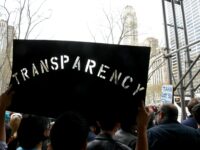Canadian Heritage Minister Pablo Rodriguez created an Expert Advisory Group on Online Safety earlier this year to help craft a potential legislative and policy response to online safety and harms issues. The panel recently concluded its work and though the media focused on a failure to achieve absolute consensus from a group that by design had different views, the reality is that common ground was found on several key issues. Emily Laidlaw, who holds the Canada Research Chair in Cybersecurity Law at the University of Calgary, served as co-chair of the expert group. She joins the Law Bytes podcast to talk about how the panel functioned, where it found consensus, areas of disagreement, and what could come next for one of the thorniest Internet policy issues.

DANGER INTERNETS AHEAD by Les Orchard (CC BY-NC 2.0) https://flic.kr/p/cSsSX
Online Harms
Bill C-11 Enters a Danger Zone: Government Shifts from Ignoring Witnesses on User Content Regulation to Dismissing Criticisms as “Misinformation”
The Standing Committee on Canadian Heritage heard from a total of 48 witnesses as individuals or representing organizations during its study of Bill C-11 (excluding the CRTC and government officials). Of those 48, at least 16 either raised concerns about the regulation of user content in the bill or disputed government claims about its effect. Liberal, NDP and Bloc MPs proposed and voted for amendments in Bill C-11 raised by a single witness or organization, but somehow the testimony of one-third of the witnesses, which included creators, consumer groups, independent experts, Internet platforms, and industry associations. was ignored.
The government’s decision to ignore the overwhelming majority of testimony on the issue of regulating user content damages the credibility of the committee Bill C-11 review and makes the forthcoming Senate study on the bill even more essential. But the government went beyond just ignoring witness testimony yesterday in the House of Commons. It now claims those views constitute “misinformation.” Tim Louis, a Liberal MP who is on the Standing Committee on Canadian Heritage and sat through hours of testimony, said this in the House of Commons yesterday:
The Law Bytes Podcast, Episode 126: Why Canada’s Online Harms Consultation Was a Transparency and Policy Failure
This week’s Law Bytes podcast departs from the typical approach as this past week was anything but typical. As readers of this blog will know, last week I obtained access to hundreds of previously secret submissions to the government’s online harms consultation. Those submissions cast the process in a new light. This week’s Law Bytes podcast explains why the online harms consultation was a transparency and policy failure, walking through what has happened, what we know now, and how this fits within the broader Internet regulation agenda of the Canadian government.
Not an Outlier: What the Government’s Online Harms Secrecy Debacle Says About Its Internet Regulation Plans
My post on the hundreds of submissions to the government’s online harms consultation has garnered significant attention, including a front page news story from the Globe and Mail (I was also pleased to appear on Evan Solomon’s show and the Dean Blundell podcast). The coverage has rightly focused on previously secret submissions such as those from Twitter likening the Canadian plan to China or North Korea and the National Council of Canadian Muslims, who warn that the legislation would have risked constituting “one of the most significant assaults on marginalized and racialized communities in years.” If you haven’t read it, please read my post summarizing some of the key findings or access the entire package that was obtained under the Access to Information Act.
The Rest of the Online Harms Consultation Story: Canadian Heritage Forced to Release Hundreds of Public Submissions Under Access to Information Law
For months, the results of the government’s online harms consultation was shrouded in secrecy as the Canadian Heritage refused to disclose the hundreds of submissions it received. I launched a page that featured publicly available submissions (links reposted below), including 25 submissions from organizations and companies as well as six individual expert submissions. I later followed up with two posts that provided further details on the publicly available submissions (here and here). Earlier this year, Canadian Heritage Minister Pablo Rodriguez released a “what we heard” report that again blocked making the actual submissions public, but provided a summary that left little doubt that the government’s plans were widely criticized and required a policy reset.
In the meantime, I filed an Access to Information Act request to compel disclosure by law of the consultation submissions. It took many months, but this week the department released the results. While some submissions may be excluded – third parties can object on certain grounds – I have obtained hundreds of additional submissions in a 1,162 page file. These can be obtained directly from Canadian Heritage by launching an informal access request at no cost with the department. The file to request is A-2021-00174 (or click here for the full file for the moment).











